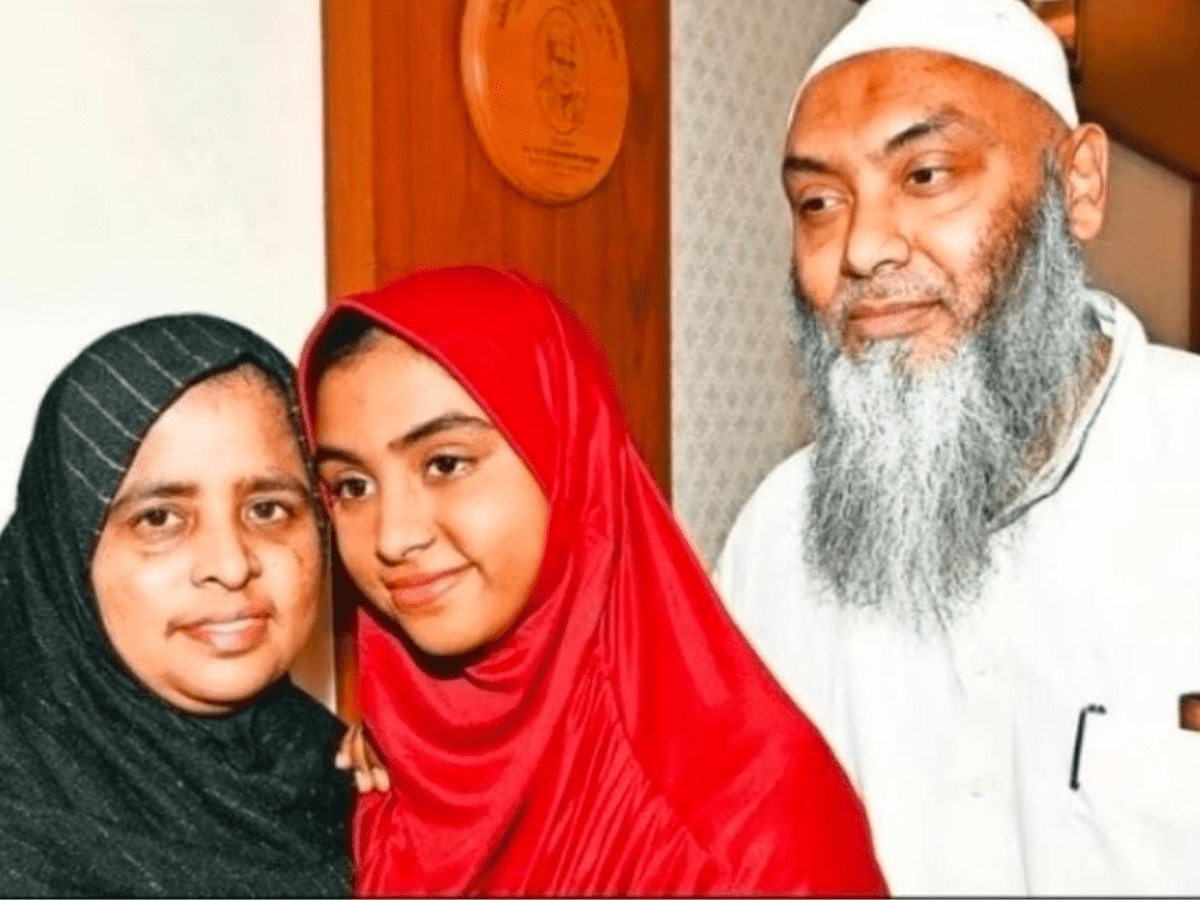
A year after Karnataka was hit by the hijab controversy disallowing several hijab-clad PU Muslim girls to discontinue or look for other options for education, a hijab-clad Muslim student topped this year’s PUC examination in the Arts stream.
Eighteen-year-old Tabassum Shaik and her family are ecstatic about the results that were declared on April 21. Tabassum was one of the many Muslim girls who faced the dilemma and uncertainty of choosing education or her religious belief.
In an interview with The Telegraph, she said she was traumatized when the hijab was banned in December 2021. The decision to attend classes without it put her under extreme guilt.
“But my parents told me that dropping out would affect our community and push us deeper into backwardness. So, they encouraged me to continue my studies,” Tabassum said who scored 593 out of 600 marks with a perfect score of 100 in Hindi, Psychology, and Sociology.
Tabassum is the second child of Abdul Khaum Shaik, an electronics engineer, and Parveen Shaik, a homemaker. Her elder sibling Abdul Kalam Shaik is doing an MTech in machine planning at a Bangalore design school.
“Many of my classmates stopped attending school and opted for distant education,” Tabassum said. She further stated that to enter her class without the hijab was not easy for her who has been wearing the headscarf since the age of five.
“Once the hijab ban started, I skipped college for two weeks. But my parents saw a bigger picture and how this would influence our local area. This encouraged me to continue my studies,” Tabassum said trying to motivate herself to navigate through her difficult choice.
Tabassum studied for 6-8 hours every day for the exams and prioritized my religious responsibilities equally.
But fear has not ended for Tabassum. Her greatest concern is if the ban would extend to colleges. “I am very concerned about whether I would be permitted to wear the hijab in the future at the university,” she was quoted by The Telegraph.
Tabassum expressed strong views about the hijab ban in Karnataka describing it as ‘undemocratic’ and ‘unsecular’.
“It was extremely unfair and illogical that in a secular country, I had to give up my hijab in order to pursue my education when I should ideally be able to do both,” The Telegraph quoted her.
Karnataka’s hijab controversy
The hijab controversy erupted in December 2020, after six Muslim students of a pre-university college in Udupi were prohibited from wearing the hijab as part of their religious obligation in the college premises. The issue hit the roof after many protested followed by clashes with their Hindu classmates who turned up wearing saffron scarves, leaving the state government to shut down colleges in the district.
Petitions were filed opposing the government’s order to ban hijab in the Karnataka High Court. However, the three-judge bench upheld the government’s decision.
The HC’s decision was challenged in the Supreme Court of India where a two-judge bench gave a split deciison. The appeal is set to be heard by a larger bench, which is yet to be formed.
In January this year, a special data report by The Indian Express, it is revealed that there is almost a 50% drop in the admission of Muslim students in government pre-university colleges (PUCs) in Udupi district.
While there is not much change in Muslim students entering pre-university colleges (Class 11) in the district, there is a massive dip in admission to government PUCs.
In 2022-23 there have been 186 Muslim student enrollments in Udupi’s government PUCs (91 girls and 95 boys), which is almost half compared to 2021-22 number, 388 (178 girls and 210 boys).
In 2022-23, private PUCs saw a hike in Muslim admissions with 927 (487 girls and 440 boys) as compared to 2021-22 number, 662 (328 girls and 334 boys).
“The enrollment of Muslim girls in our PU college has almost doubled for the first time. This is a testament to how the hijab issue has actually impacted them personally and academically,” Indian Express quoted administrator of Saliath Group of Education, Aslam Haikady.



